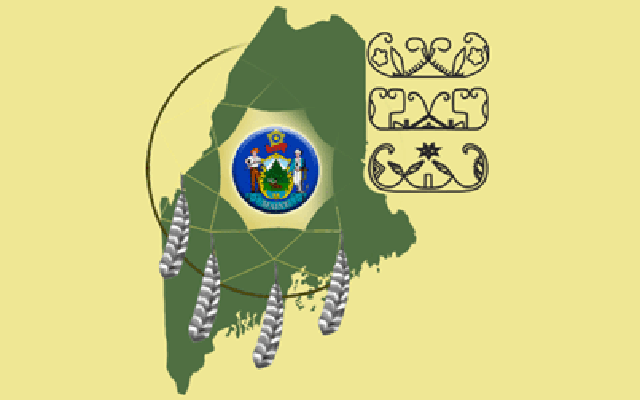AUGUSTA, Maine — On March 2, 2017, the Maine Indian Tribal-State Commission (MITSC) released Suffolk University’s Indigenous Peoples Rights Clinic’s The Drafting and Enactment of the Maine Indian Claims Settlement Act: Report on Research Findings and Initial Observations, a report written by Nicole Friederichs, Amy Van Zyl-Chavarro and Kate Bertino.
The release took place when the MITSC reported to the Joint Standing Committee on the Judiciary. Chiefs and tribal leaders from all of the federally recognized Wabanaki tribes participated, including the Aroostook Band of Micmacs, Houlton Band of Maliseet Indians, Passamaquoddy Tribe and Penobscot Indian Nation.
The clinic examined the development of the Federal Maine Indian Claims Settlement Act at the request of and with funding from the MITSC, including reserved rights to resources in indigenous territory, unabrogated treaty rights, conflicts in terminology between sustenance and subsistence, internal tribal matters, and the creation of Settlement Act sections 1725(h) and 1735(b), which describe the application of federal Indian law in Maine. Their research has confirmed many of the contentions held by tribal negotiators for the past 37 years.
“The struggle to acknowledge Wabanaki sovereignty and unceded treaty rights began in the Passamaquoddy Tribe at Indian Township. We have been consistent in our approach to protect the land and the water throughout our ancestral territories. The settlement acts were meant to be tools to advance this. This report further demonstrates our unwavering integrity in upholding our responsibilities,” stated Chief William Nicholas, Passamaquoddy Tribe at Motahkmikuk.
“The Penobscot Indian Nation has been consistent in its interpretation of the Maine Indian Claims Settlement Act, especially as it pertains to our unceded territory which includes the Penobscot River. The US government, the Department of the Interior and now this independent inquiry conducted by Suffolk University concurs. It is past time that the state of Maine recognizes the full extent of Indigenous sovereignty that is the cornerstone of the 1980 settlements,” said Chief Kirk Francis, Penobscot Indian Nation.
The Clinic also tracked attendance at important and pivotal meetings. It found that Tribal negotiators were not present for many meetings and, on some occasions, there was no one representing the Tribes.
“The Houlton Band of Maliseet Indians fully understand that our interests were not considered or protected in the crafting of the 1980 Acts, as we were not active participants in the process. We have faced many challenges over the years and are blessed to have settled in our aboriginal homelands. With integrity and dedication and out of respect for our people, our leaders continue to build a healthy community with a strong economic engine. This report is one more tool that we will use in our on-going work to achieve our goals,” declared Chief Brenda Commander, Houlton Band of Maliseet Indians.
“Even though the Micmac Tribe was unrepresented in the 1980 settlement negotiations, the MICSA was the alleged and contested foundation of the Micmac Settlement Act which has not been approved by the Aroostook Band of Micmacs. We appreciate this report as necessary background to better understand the framework of the unratified Micmac Settlement Act,” said Chief Charlie Peter Paul.
The clinic has developed a searchable database that the MITSC hopes will be very useful to everyone who wants to learn more about the development of the Maine Indian Claims Settlement Act. The site is http://maineindianclaims.omeka.net.
Chief Ralph Dana of the Passamaquoddy Tribe at Sipayik observed, “The Suffolk University report builds on the findings of the MITSC Assessment of the Saltwater Fisheries Conflict between Passamaquoddy and the State of Maine. While this report is well researched and offers fair observations, it is not comprehensive. It is a reliable first step in addressing the problems that have resulted from the implementation of the settlement acts.”
For more information, visit the MITSC website, www.mitsc.org.








